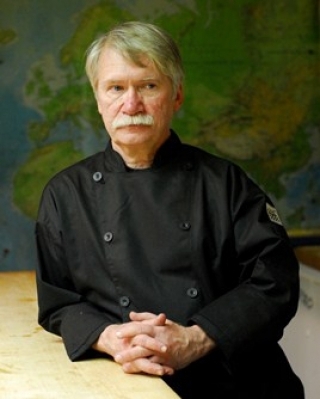
Unifying and Healing with Food
02 May 2022Teach the power of food and its ability to demonstrate cooks’ care.
By Paul Sorgule, MS, AAC
Feedback & comments: This email address is being protected from spambots. You need JavaScript enabled to view it.
These are challenging times; times that test our abilities and humanity. We know food has the power to heal physically and proper nutrition can help avoid disease. What we too often forget is the emotional and spiritual power of a prepared meal.
Let us not forget the bigger picture as we work to prepare the next generation of cooks and chefs. What we do, what our graduates will do, and what the food industry as a whole has the capacity to do, is heal the whole person. Collectively, we can turn the worst of times into a time of hope with the potential for rebirth and positive thinking.
There hasn’t been a time when this is more apparent than right now. Working through the worst pandemic in a century, battling the impact of global climate events, experiencing challenges to our democratic process and a unified America, and facing down the tyranny of a heartless regime pushing the envelope on potential world war are taking a toll on all of us. We want to help to make things right. Where do we start?
We start with our interactions in the classroom and set the stage for understanding. Active engagement is the means to make things right. We start with the power of food and the message that it is part of who we are. There are actions we have grown to depend on in times of crisis, times that come all-too frequently now. We start by setting the example for caring and doing what we do best - feed those who need to be fed.
One such action is facilitated by those in our industry with big hearts and souls. Chef Jose Andres, a true humanitarian, has facilitated the growth of World Central Kitchen (WCK); an organization with one focus - be there and feed those in need. Whether it is a hurricane, flood, fire, earthquake, political unrest, or war - we can depend on WCK to be there before anyone else. Weeks ago when the war in Ukraine began, I was comforted in knowing that WCK was already set up and ready to cook. A meal was there when refugees left trains in Poland. They had nothing, their towns and cities decimated, their jobs lost, their families separated, and all they carried was on their backs. They had a meal. It was not just physical; it was symbolic. Someone cares. There is a tiny light to focus on. Their bellies were full and they were safe. This is our industry, the industry that our students will be entering soon, an industry with a big heart and a desire to serve.
Set aside all the great classes on beautiful buffet platters, restaurant operations, human resource management, pastries and chocolate centerpieces. This is what we can do right now. We can show our students through example what it means to be a cook or a chef. We are caring people who want to bring peace to the table, to create an environment where people can break bread, set aside their problems and differences, raise a glass, and celebrate the best of humanity. If the “good” in people could be shown as a tangible product it would be a plate of food.
We need to teach to this end. What we do is important. It goes beyond profit and loss statements, well beyond recognition for beautiful plates, great ambiance and technically proficient service. What we do is about caring for people and turning lemons into lemonade.
Take the time in your classes to talk about the food business’s altruistic side. Talk about the importance of democracy and the privilege of food. Talk about giving back and how real success, in the long run, is about that moment when a person smiles, even though their situation may be grave, simply because we demonstrated cooks’ care.
Support World Central Kitchen by clicking here.
Paul Sorgule, MS, AAC, president of Harvest America Ventures, a mobile restaurant incubator based in Saranac Lake, N.Y., is the former vice president of New England Culinary Institute and a former dean at Paul Smith’s College. Contact him at This email address is being protected from spambots. You need JavaScript enabled to view it..
